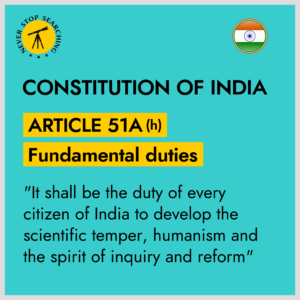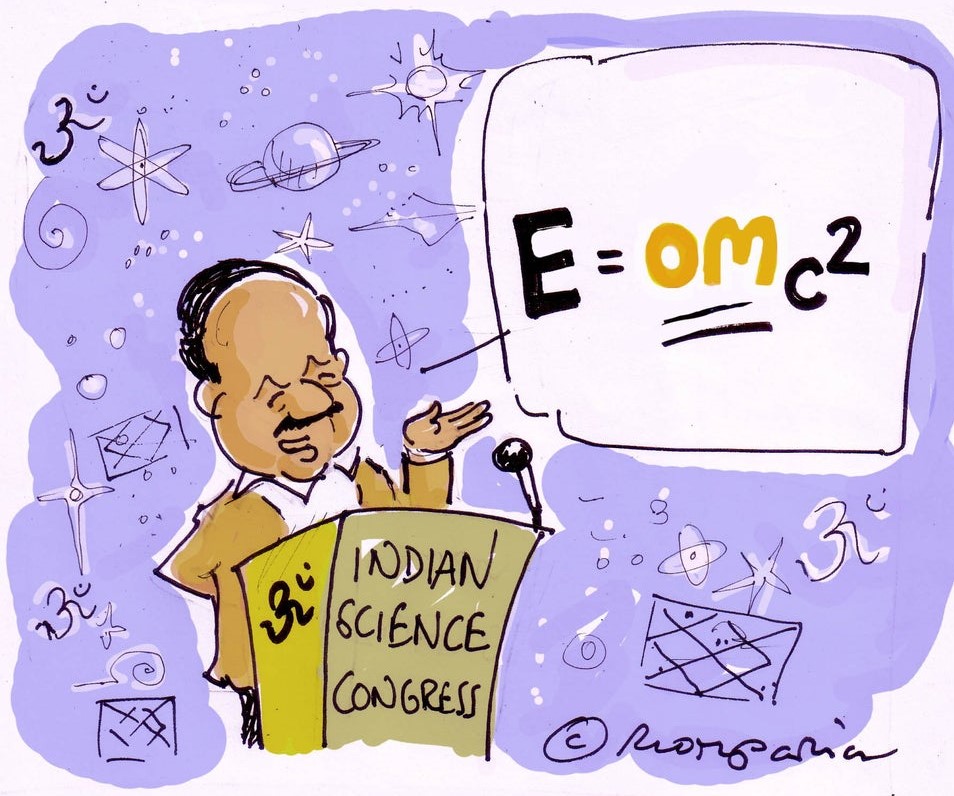Image Credit: Link
Almost eight years ago, on 20 August 2013 to be precise, Dr. Narendra Dabholkar was shot down while he was on his morning walk in Pune. The provocation was Dabholkar’s campaign to promote rational thinking and eradication of Andh Shraddha or Blind Faith. While those who planned and executed this dastardly murder are yet to face the consequences of their act, it did arouse the Maharashtra government to promulgate an ordinance for Eradication of Blind Faith on the very next day. The ordinance was replaced by the Maharashtra Prevention and Eradication of Human Sacrifice and Other Inhuman, Evil and Aghori Practices and Black Magic Act in December 2013. It may appear that in this instance the government moved swiftly and decisively, but keep in mind that the original draft for this legislation was submitted by Dabholkar and approved by the Cabinet of Maharashtra in 2003. Its ratification by the Central government was resisted by several organisations including The Art of Living Foundation, Hindu Janajagruti Samiti and the Haji Malang Dargah, a truly ‘secular’ front. While Maharashtra has taken the lead, there is still no similar national law against superstition.
One may wonder for a moment why we are concerning ourselves with this incident at a time when humanity is facing an existential threat from a deadly virus. But only for a moment, I hope. Our response to this pandemic has been complicated by appeals to superstitious beliefs and pseudo-science. Article 51A of the Indian Constitution lays down the Fundamental Duties of every citizen of India, of which Part (h) is ‘to develop a scientific temper, humanism and spirit of enquiry and reform’. Mention of this fundamental duty hardly ever appears in our training as scientists and technologists, not to speak of other streams of education. As a result, life carries on regardless of our scientific and technical expertise in our professional life. Major decisions are taken depending on the position of planets and the advice of spiritual gurus rather than rational consideration. So long as such decisions only impact our own lives and those of our powerless family members, there is no cause for general alarm. But when such beliefs inform public policy, it can have devastating consequences for us as a nation.

Image Credit: Link
The Constitution and its laws can be ignored or subverted, often with impunity, but the laws of nature are unforgiving no matter how big the electoral mandate. No havan or chadar can save one from the consequences of the violation of laws of nature. For some years now there has been a systematic onslaught on science and scientific thinking by demeaning it as Western as opposed to indigenous. This is a false dichotomy. All knowledge systems are the result of observation, study and theorisation and are subject to test and verification. No particular knowledge system can claim divine superiority over another, and certainly no practitioner. We have seen claims of precedence in technological advancement being made without any proof, and challenges to such claims being labelled as unpatriotic. The vehemence with which any opposition is put down has led to silencing of all debate and discussion.
When we heard claims being made about plastic surgery and flying machines, we humoured it as clever vote-gathering efforts. We hoped that when faced with real-life problems, better sense would prevail and sane voices would guide public policy formulation. However, our very first response to the Covid-19 pandemic was not to create public awareness but a public relations exercise, accompanied by pseudo-scientific claims of the finite and short ‘life-time t’ of the virus, so that keeping a lockdown ’t + 2 hours’ long would finish the virus in one brilliant masterstroke. And many of us bought into this fantasy and celebrated the vanquishing of the virus by clanging plates, pots and pans. Rather than providing PPE kits to our doctors, nurses and frontline workers, we showered flower petals on them and considered our duty done. But a couple of days later we suddenly put the whole country under lockdown with a four-hour notice and without adequate preparation. The virus was yet to make a significant impact, but the lockdown began impacting the lives and livelihoods of millions of workers who suddenly found themselves facing starvation. Our response to the pandemic should have been guided by data and rational thinking, but for quite some time now, we have chosen to hide data that were considered unflattering. Two members of the National Statistical Commission resigned in protest a couple of years ago over suppression of NSSO data by the government. In the absence of reliable data, what should guide policy making? Rhetoric and claims of Indian exceptionalism replaced reliance on science and the need to learn from global experience. Rather than emphasising the need for a greater number of tests, we quoted the results of the meagre testing to claim victory over the virus. Going by official data, it appeared that India had faced the pandemic quite well. We talked about ‘end game’ until the second wave hit us and even the official figures were not able to hide the gravity of the crisis. The reality on the ground was so stark that even these official figures seemed suspect, not by a few percent but by several hundred percent. Suddenly, India no longer looked like the Vishwa Guru who would lead the world out of the pandemic. The vaccine pharmacy of the world was reduced to seeking foreign aid for the first time in sixteen years.
The scorn with which we view modern science is also reflected in the kind of remedies that are being peddled by quacks and endorsed by senior ministers. As a consequence, we have neglected to support the indigenous vaccine manufacturers and did not place orders for vaccines for our own population when other countries were placing large orders with them. One cannot understand this reluctance, it can only be explained by a stubborn disbelief in modern medicine. Even at this late stage, attempts are being made to spread misinformation about the need for oxygen and critical medicines. It may seem laughable when someone is declaring that his nostrils are oxygen cylinders but the mistrust of science such influencers spread can only result in even greater loss of life. Unfortunately, we are still busy managing perceptions rather than managing the pandemic. Only reliable data and a scientific approach can help us get out of this emergency without paying a price that is heavier than necessary. We have seen what a difference a scientific and rational approach can make even in a few weeks. The transformation that the US has seen is before us.
The murder of Dr. Narendra Dabholkar may have been a random tragedy, but the fact that it was followed by the murders of Govind Pansare, MM Kalburgi and Gauri Lankesh, in all of which the same group of persons and organisations are implicated, and no one has faced trial till now, speaks of a deeper societal malaise. Anti-science conviction seems to have taken hold of our decision-makers so that even when faced with the worst pandemic in a century, people in power are supporting spurious remedies and giving them official sanctions. We were not always like this, at least not at the level of public policy. We have been successfully carrying out a Universal Immunisation Program for more than forty years. As a result, the Infant Mortality Rate has come down from 189.629 per 1000 live births in 1950 to 28.771 in 2021. This has happened by following public health policies guided by modern science.
Our public policy-making needs to regain its Scientific Temper.

2 comments
Idiotic article, too many issues to list. Reducing complex issues to simplistic approximations which are grossly wrong and fall as flat as his labored so called ironic one liners. Contractor-I should address him by his colonial era surname-stick to simple statements know your limitations.
Mathematics Assignment Help provide assistance to students who encounter challenges in achieving exceptional scores on their assignments.